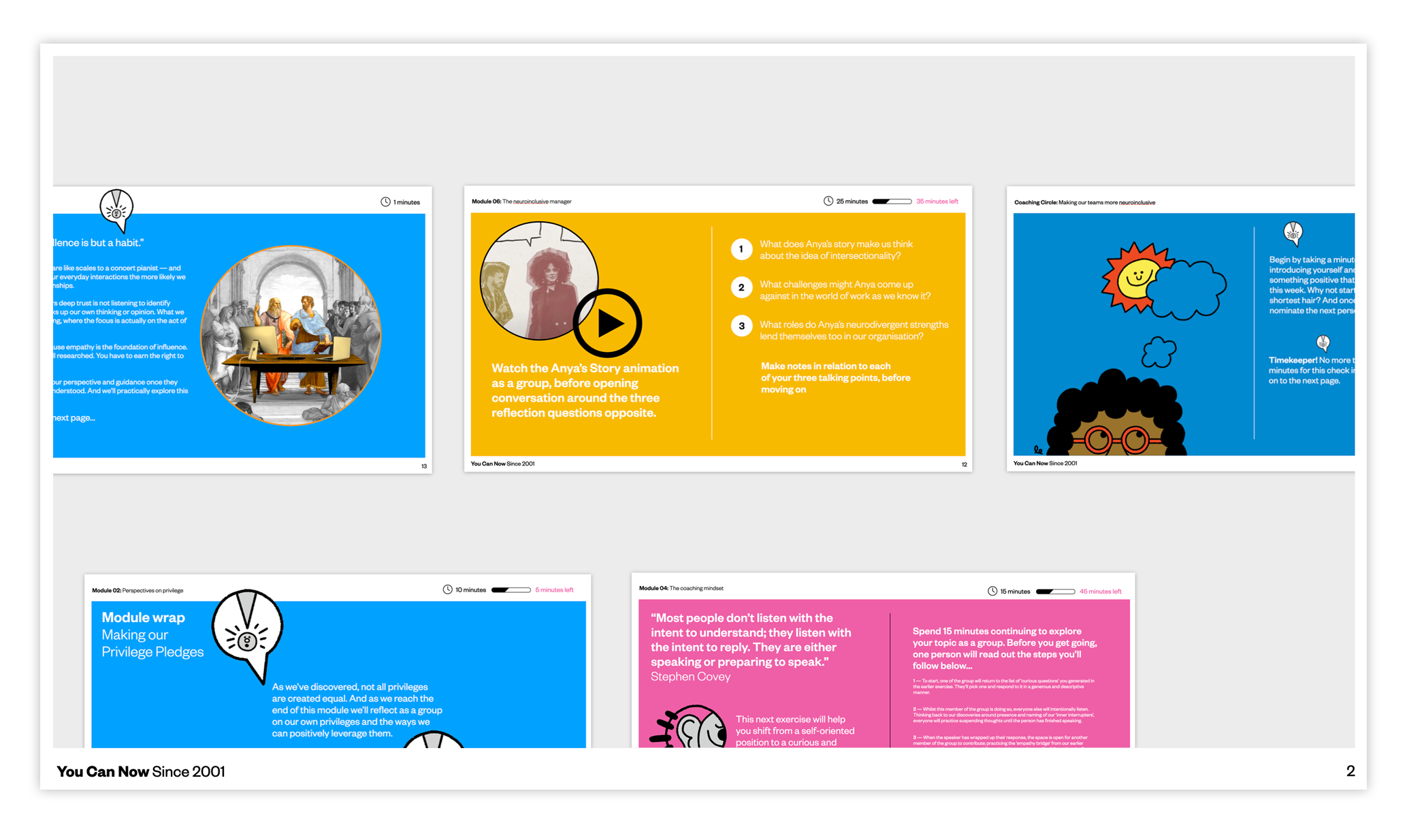Coaching Circle: Unravelling unconscious bias, and talking about it in our teams
This coming Coaching Circle is aimed at people managers keen to deepen their understanding of unconscious bias, explore proven approaches to countering it — and to arm themselves with powerful and purposeful talking points, tips and tools to take back to their own teams.
Coaching Circles brings together small groups of peers (4-5) for a structured, collaborative and action-oriented exploration of a topic or theme.
Over 90 minutes, in a safe and supportive space, the group works through a series of prompted discussion points, exercises and reflection questions; drawing in their own take on a topic and creating learning and accountability on future facing steps together.
This coming Coaching Circle is aimed at people managers keen to deepen their understanding of unconscious bias, explore proactive and positive steps to practically counter it, and to arm themselves with powerful and purposeful talking points, tips and tools to take back to their own teams for further conversation and experimentation.
Modern managers and leaders are continually striving to make their organisations and cultures more diverse, equitable and inclusive. And historically, unconscious bias training has played a big part in their efforts. Its aim is to build awareness of the innate mental shortcuts that, while often saving us time and energy, can sometimes result in unhelpful, and inadvertently discriminatory, decision making.
But significant recent studies have revealed that traditional approaches to unconscious bias training aren’t working, and in some instances — by normalising the notion that bias is innate within everyone and beyond our control — they can actually backfire; making people feel biases are unavoidable and de-motivated to change behaviour as a result.
Another identified issue is that traditional unconscious bias training approaches emphasise extreme instances of workplace discrimination, giving participants the mental wriggle room to feel that they would ‘never do something like that’ and so disengage overall. While highlighting powerful, high profile examples is important, engagement, agency and change is possible when people can identify the chance of bias within their own everyday, recognisable scenarios; someone being subtly excluded from the conversation in a meeting, or new projects consistently being handed to the same team mates.
Organisations able to demonstrate actual impact and progress in this area are going beyond awareness raising, and equipping people with practical and proactive tools to both recognise the potential for biases within these familiar daily contexts — and consciously mitigate them.
And crucially, they’re collecting data on various meaningful metrics so that there’s a picture and a motivating story for managers to share around positive impact and change.
It's these approaches we'll be exploring together, and turning into talking points and actions back within our own teams.

How the session will be structured:
Having shared a warm welcome, and context on format upon arrival, each Coaching Circle of 4-5 peers will work together through a series of structured discussions, activities and reflections to specific time-windows. All circles will come together as one at key moments, before reforming and moving on.
Discussion and activities will focus on:
• The basis of our biases.
• Our own cultural contexts in which bias is most likely to arise.
• Emphasising the power that our team members hold for change.
• Encouraging interactions among different types of groups.
Who the session is for:
This Coaching Circle is aimed at those managing others, or shortly to do so, and wanting to explore powerful enhancements in those relationships among supportive and collaborative peers.
I loved the shared problem aspect of the session, and that it really encouraged group discussion.